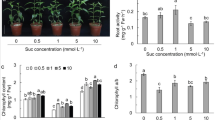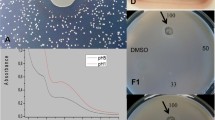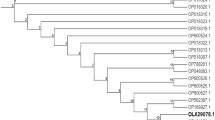Abstract
RECENTLY several workers have concluded that, under certain conditions, amino-acids can be assimilated intact by yeasts1,2. White and Munns1 conclude that aspartic acid can be used as a source of nitrogen by yeast, and also that the carbon skeleton can be used if fermentable sugars are present (probably as energy sources). They found that when aspartic acid is added to the test medium in sufficient amount, the growth of yeast greatly exceeds that when only hexose sugars are present.
This is a preview of subscription content, access via your institution
Access options
Subscribe to this journal
Receive 51 print issues and online access
$199.00 per year
only $3.90 per issue
Buy this article
- Purchase on Springer Link
- Instant access to full article PDF
Prices may be subject to local taxes which are calculated during checkout
Similar content being viewed by others
References
White, J., and Munns, D. J., Nature, 165, 111 (1950).
Thorne, R. S. W., J. Inst. Brew., 55, 201 (1949).
Nickell, L. G., and Burkholder, P. R., Amer. J. Bot. (in the press).
Black, L. M., Nature, 158, 56 (1946).
Black, L. M., 6th Growth Symposium, 79 (1947).
Burkholder, P. R., and Nickell, L. G., Bot. Gaz., 110, 426 (1949).
Author information
Authors and Affiliations
Rights and permissions
About this article
Cite this article
NICKELL, L. Effect of Aspartic Acid on Growth of Plant-Virus Tumour Tissue. Nature 166, 351–352 (1950). https://doi.org/10.1038/166351b0
Issue Date:
DOI: https://doi.org/10.1038/166351b0
Comments
By submitting a comment you agree to abide by our Terms and Community Guidelines. If you find something abusive or that does not comply with our terms or guidelines please flag it as inappropriate.



